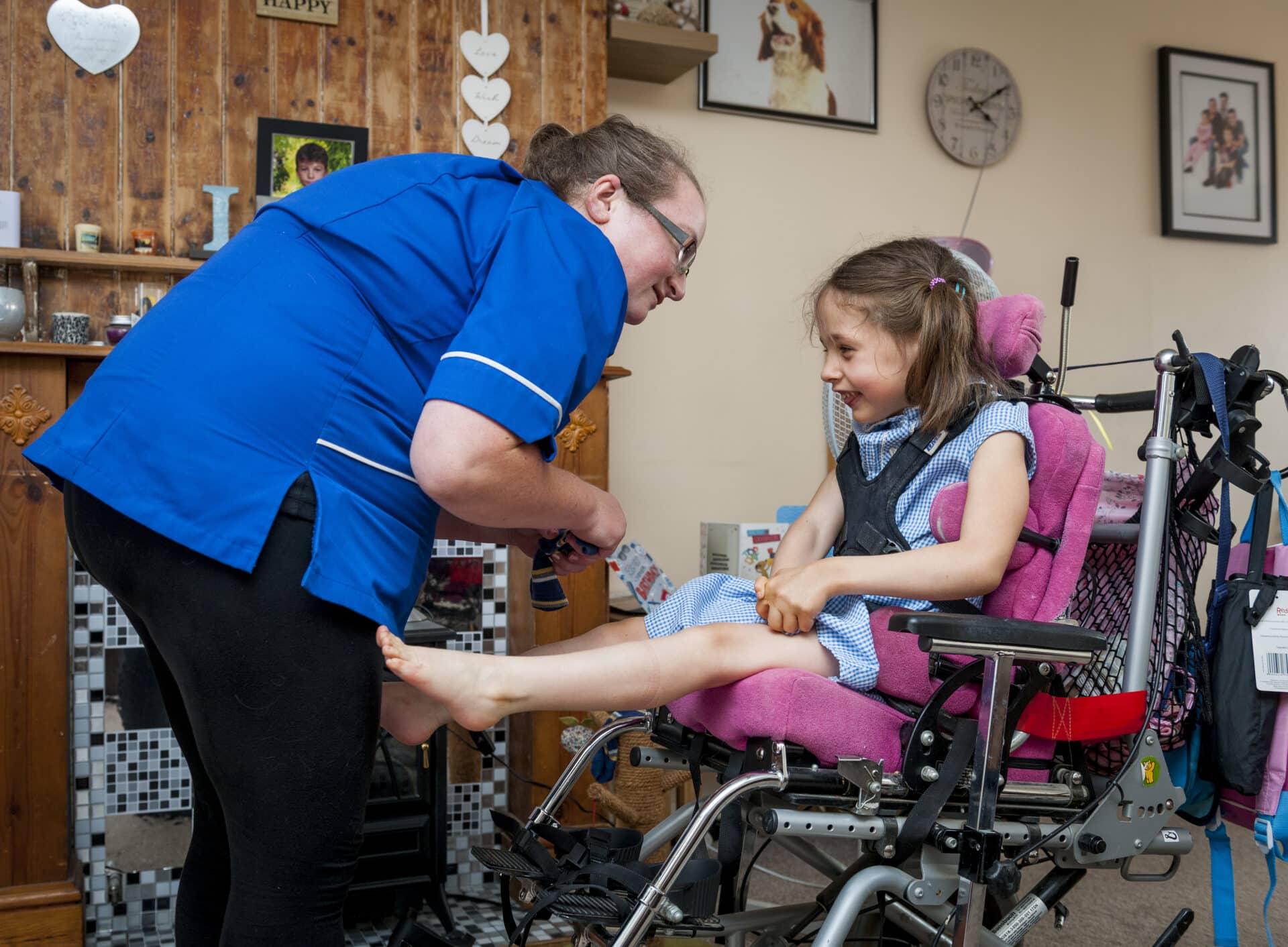Children’s Complex Care: Challenges and Solutions

Providing care for children with complex health needs can be a demanding and intricate task. Children’s complex care involves managing multiple health issues, which may include chronic illnesses, physical disabilities, or developmental disorders. This blog post discusses the challenges associated with children’s complex care and proposes practical solutions to address these challenges.
Understanding Children’s Complex Care
Children’s complex care refers to the specialised support and medical attention required by children with multiple, often interrelated, health conditions. These conditions can range from severe physical disabilities to chronic illnesses and developmental disorders. The care for these children is typically long-term and requires a multidisciplinary approach.
Challenges in Providing Complex Care for Children
Multidisciplinary Coordination
One of the primary challenges in children’s complex care is the need for coordination among various healthcare providers. Children with complex needs often require services from multiple specialists, including paediatricians, therapists, and nurses.
Emotional and Financial Strain on Families
- The emotional toll on families can be significant, as caring for a child with complex needs is both time-intensive and emotionally draining.
- Financial strain is also a common challenge due to the cost of ongoing medical care, special equipment, and potentially modified living arrangements.
Access to Specialised Resources
Accessing specialised resources such as advanced medical equipment or tailored educational programs can be difficult. This may be due to limited availability or high costs associated with these resources.

Solutions for Effective Children’s Complex Care
Addressing the challenges in children’s complex care requires a multifaceted approach, combining medical expertise, family support, and community resources.
Enhanced Multidisciplinary Teamwork
Effective communication and collaboration among healthcare providers are essential. This ensures that all aspects of a child’s care are addressed in a cohesive and coordinated manner.
Support for Families
- Providing emotional support through counselling and support groups.
- Offering financial assistance programs to help with the costs of care and equipment.
Improving Access to Resources
- Developing community programs to increase the availability of specialised resources.
- Advocating for policy changes to enhance funding and support for children’s complex care.
The Role of Technology in Improving Care
Advancements in technology have the potential to significantly improve care for children with complex needs. For instance, telehealth services can make it easier for families to consult with specialists, reducing the need for frequent travel. Additionally, innovative medical devices and software can enhance the monitoring and treatment of various conditions.
According to a report by the NHS Confederation, technology is playing an increasingly important role in supporting patients at home, including children with complex care needs.

Tailoring Education and Social Integration for Children with Complex Needs
The education and social integration of children requiring complex care are vital for their overall development and wellbeing. This aspect of care poses its own set of challenges and requires tailored approaches.
Inclusive Educational Environments
Creating inclusive educational environments is crucial. This involves adapting teaching methods and curricula to meet the unique learning needs of these children. Schools and educational institutions play a significant role in providing appropriate support, such as special education services and individualised education plans.
Promoting Social Integration
Social integration is essential for the emotional and psychological development of children with complex care needs. This includes facilitating their participation in community activities, playgroups, and other social settings where they can interact with peers.
Navigating Legal and Ethical Considerations
Providing complex care for children also involves navigating a myriad of legal and ethical considerations. This includes ensuring that care decisions are in the best interest of the child and comply with legal standards.
Consent and Decision Making
One of the key issues is decision-making on behalf of the child. It is important to involve the child in the decision-making process to the extent possible and ensure that their rights and wishes are respected.
Protecting Children’s Rights
Ensuring the protection of children’s rights in healthcare settings is paramount. This includes the right to privacy, dignity, and access to high-quality care. Care providers and families must work together to uphold these rights at all times.
Building a Community of Care
Building a community of care around children with complex needs is essential. This involves establishing a network of support that includes healthcare providers, family members, educators, and community members.
Role of Support Groups and Charities
Support groups and charities can provide invaluable resources and emotional support to families. They offer a platform for sharing experiences, accessing information, and receiving guidance on navigating the complexities of care.
Community Awareness and Involvement
Raising community awareness about the needs and challenges of children with complex care requirements is important. Community involvement can lead to better support systems and more inclusive environments for these children.
FAQs
Effective children’s complex care involves a multidisciplinary approach that includes medical treatment, emotional support, educational adaptations, and social integration. It requires coordinated efforts from healthcare professionals, families, educators, and community members to address the diverse needs of the child. Central to this approach is the personalisation of care to suit the individual requirements of each child. For more detailed information, the Children’s Commissioner for England offers insights into the needs of children with complex conditions.
Technology plays a significant role in enhancing children’s complex care. It can facilitate telehealth services for remote consultations, provide assistive technologies for communication and learning, and offer innovative medical devices for monitoring and treatment. These technological solutions can improve access to care, support personalised treatment plans, and enable children with complex needs to engage more fully in educational and social activities.
Families managing children’s complex care can access a range of support services, including healthcare professionals specialising in complex care, support groups, and charities dedicated to specific conditions. These resources offer emotional support, practical advice, and guidance on navigating healthcare systems and accessing necessary services. Additionally, governmental and non-profit organisations often provide financial assistance, legal advice, and advocacy services to support families in their care responsibilities.